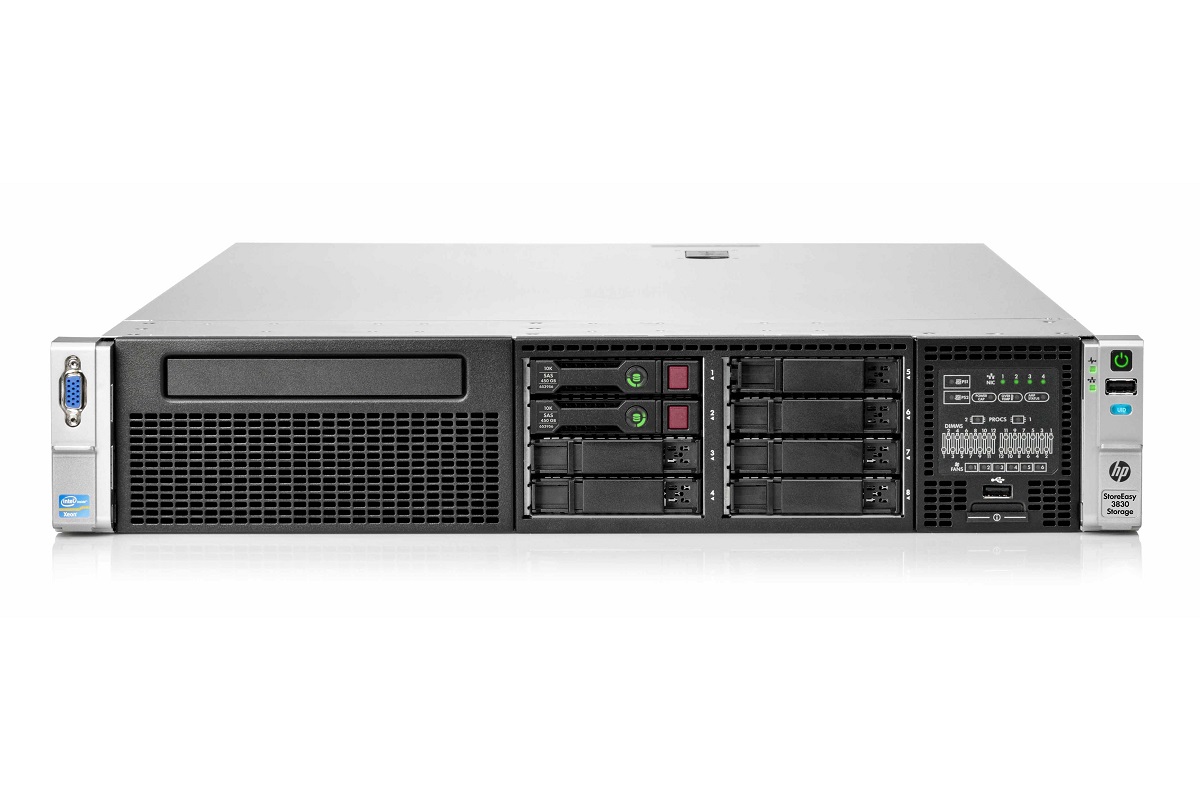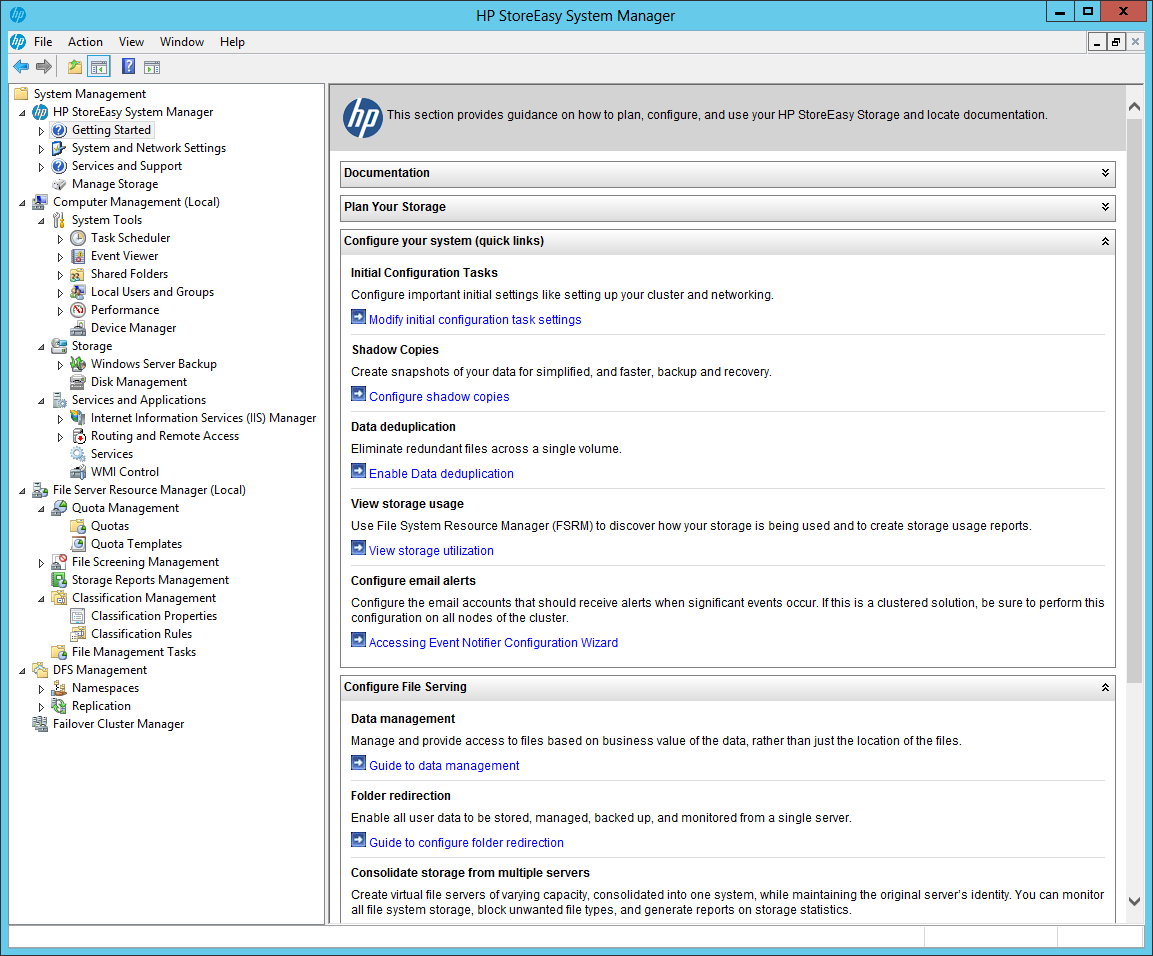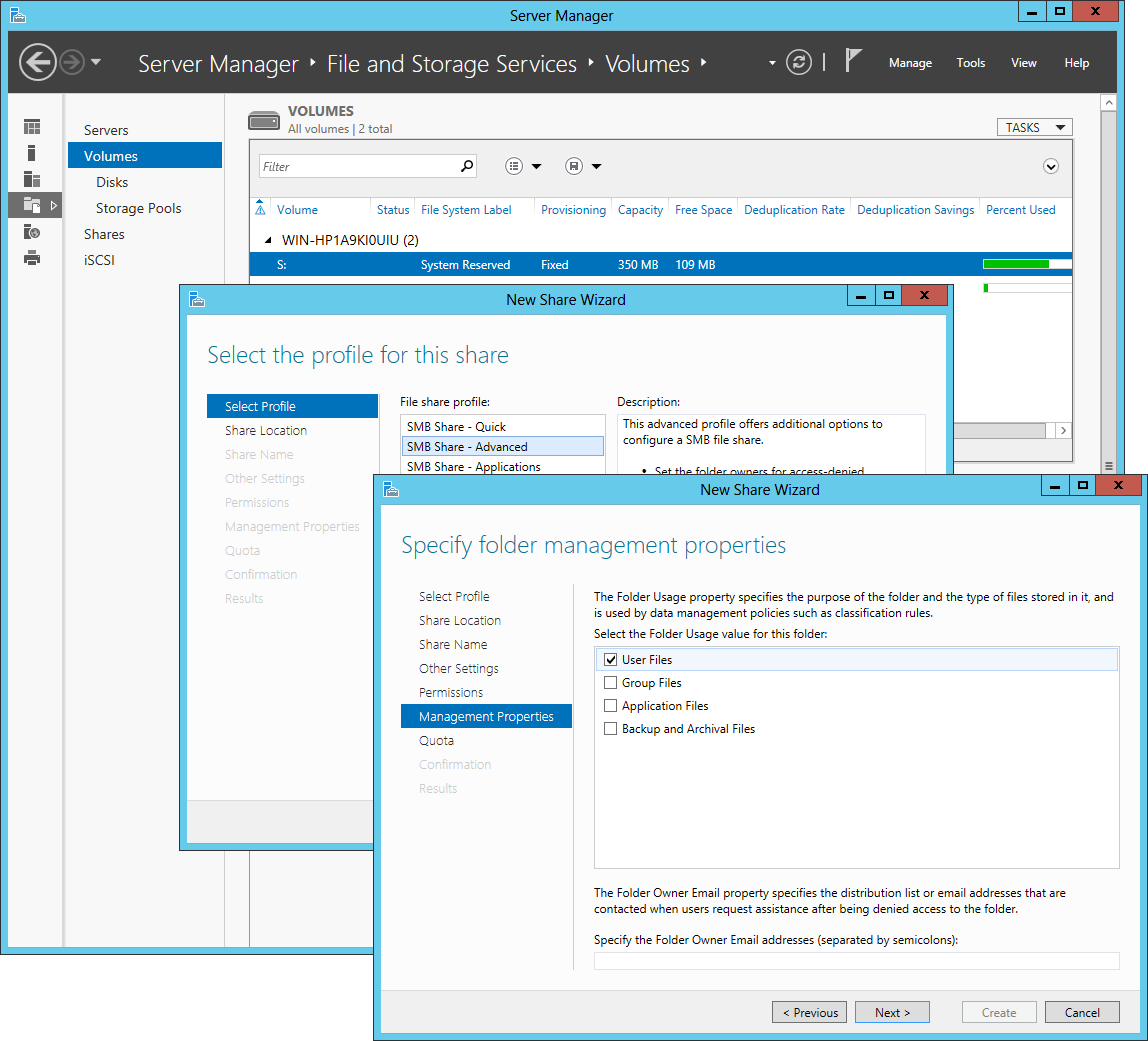HP StoreEasy 3830 Gateway Storage review
HP’s StoreEasy 3830 aims to make your SAN more versatile with its combination of WS2012 and classy ProLiant Gen8 hardware.


With Windows Storage Server 2012 at its helm, the StoreEasy 3830 provides an easily managed solution for amalgamating existing storage arrays and SANs. Its hardware credentials are impeccable and expansion potential is limited only by the size of your back-end storage systems.
-
+
ProLiant Gen8 hardware; WSS2012 Standard included; Good value; Centralised SAN and array management; Good deduplication performance
-
-
Minimal storage included; Extra HBAs must be factored into costs

HP has thrown its weight firmly behind Microsoft's Windows Storage Server 2012 (WSS2012) with its latest family of StoreEasy appliances. In this exclusive review we look at the StoreEasy 3830 Gateway Storage, which is designed to sit in front of existing SANs or storage arrays and provide easily managed file sharing services and application storage.
The 3830 focuses on managing external arrays and, as such, has no real limitations when it comes to maximum capacity. It's also designed to provide high levels of fault tolerance as it includes a licence for Microsoft's Cluster Service.
Provisioning is straightforward enough - regardless of whether storage is local or external.
A common factor across all StoreEasy products is the ProLiant Gen8 servers at their foundation. The 3830 uses a ProLiant DL380p Gen8 rack server, which impressed us mightily when we reviewed it.

The StoreEasy System Manager provides quick links to all storage provisioning tasks.
ProLiant Gen8 hardware
This 2U chassis is equipped with a single 2.4GHz E5-2609 CPU partnered by 16GB of DDR3 memory. Local storage is handled by the embedded Smart Array P420i RAID controller which includes a 1GB FBWC (flash-backed write cache) module and fast charging capacitor.
The price only includes a pair of 450GB 10K SAS drives preconfigured in a mirror and dedicated to the Windows OS. You can add more local storage if you want, but the idea behind the 3830 is that you choose the appropriate HBAs when ordering so you can connect it to an external SAN or storage array.
There's plenty of room to add HBAs as the base system has the primary riser with three PCI-e slots. The server accepts an optional secondary three-slot riser but you'll need a second CPU installed to enable this.

Wizards make light work of share creation and file classification.
Get the ITPro daily newsletter
Sign up today and you will receive a free copy of our Future Focus 2025 report - the leading guidance on AI, cybersecurity and other IT challenges as per 700+ senior executives
Dave is an IT consultant and freelance journalist specialising in hands-on reviews of computer networking products covering all market sectors from small businesses to enterprises. Founder of Binary Testing Ltd – the UK’s premier independent network testing laboratory - Dave has over 45 years of experience in the IT industry.
Dave has produced many thousands of in-depth business networking product reviews from his lab which have been reproduced globally. Writing for ITPro and its sister title, PC Pro, he covers all areas of business IT infrastructure, including servers, storage, network security, data protection, cloud, infrastructure and services.
-
 Google faces 'first of its kind' class action for search ads overcharging in UK
Google faces 'first of its kind' class action for search ads overcharging in UKNews Google faces a "first of its kind" £5 billion lawsuit in the UK over accusations it has a monopoly in digital advertising that allows it to overcharge customers.
By Nicole Kobie Published
-
 Darktrace unveils tailored AI models with a twist for its cybersecurity agent
Darktrace unveils tailored AI models with a twist for its cybersecurity agentNews Darktrace has announced new AI models for its agentic AI security tool, but it's taken a novel approach to tackle hallucinations.
By Rory Bathgate Published
-
 This tech company wants to pay staff to look after their mental and physical wellbeing
This tech company wants to pay staff to look after their mental and physical wellbeingNews Hot on the heels of its four-day week trial, tech company Thrive is offering staff new incentives to take care of their mental and physical wellbeing.
By Ross Kelly Published